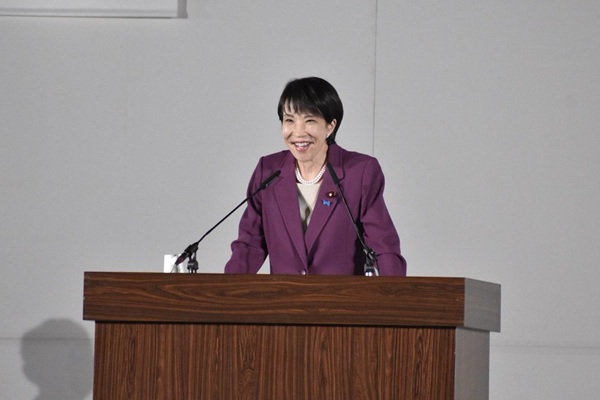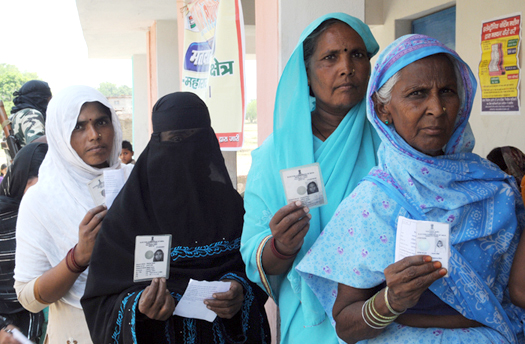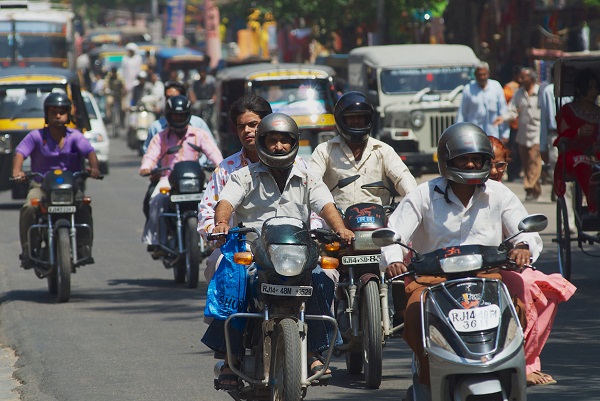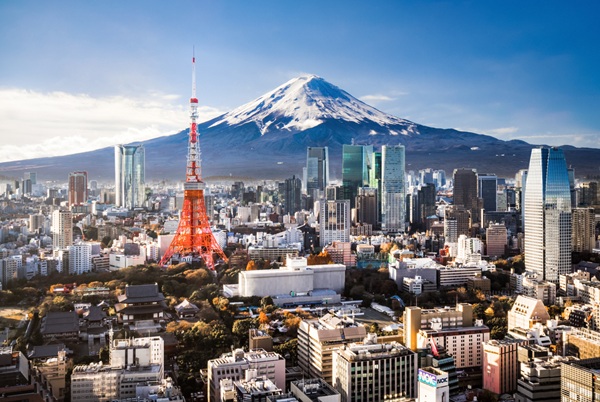.png)
When Saving Mental Peace Costs Physical Health
To survive here, we stopped feeling. To heal, we must start again.
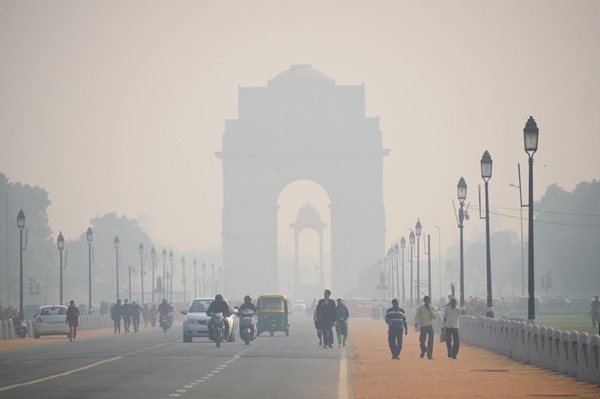

Kirti Tarang Pande is a psychologist, researcher, and brand strategist specialising in the intersection of mental health, societal resilience, and organisational behaviour.
November 8, 2025 at 1:56 PM IST
Delhi woke up coughing again today. The air outside is thick enough to taste, yet people flock to cycle in ‘Fit Delhi’ rallies.
In the Bhagavad Gita, Krishna says, “Your mind can be your greatest enemy or your greatest friend.” For many Delhiites today, the mind is sadly playing the role of the enemy — defending the psyche by denying a danger that suffocates the lungs. I write this in the hope that our minds may once again become our friends, reclaiming awareness before indifference turns into irreversible harm.
Delhi is gasping. Doctors warn that the city’s air is not just irritating throats—it is damaging hearts, kidneys, and brains. Studies suggest it takes almost a decade off a person’s life expectancy. Schools shut intermittently, hospitals overflow, yet the rhythm of life continues with remarkable composure. Even as authorities trade blame, citizens choose endurance. The Chief Minister temporarily left the capital to campaign in Bihar during its worst smog days may infuriate some—but for most, it barely stirs emotion. Delhi just sighs and moves on.
This stoicism is intriguing because Delhiites are rarely shy about emotion. They wear their tempers and tenderness with pride, seeing both as part of their cultural DNA. Yet when it comes to pollution—a crisis that quietly corrodes their lives—they become almost monastic in tolerance. The right to breathe clean air is not just constitutional; it is existential. It is the right not to live inside a gas chamber. Still, it remains absent from election manifestos, ignored in public debates, and missing from citizen demands.
The last leader I remember who demonstrated some systemic, long-term, sustainable action in this regard was Sheila Dikshit, with her efforts to de-congest Delhi through NCR development, and to replace buses (despite opposition) with metros, offering structural relief. Since then, odd-even traffic experiments have come and gone, and citizens have returned to their routines without demanding deeper policy change, as if nothing toxic lingers in the air.
Ask around, and you’ll hear a strange blend of humour and resignation. “Who’s stopping you?” someone laughs, “Go out if you want, but don’t blame the government if you fall sick.” Another quips, “We Delhi people are strong—our lungs are used to this.” Some go further: “Our child was born here; his lungs have adapted. It’s building immunity.” A few point to false equivalences: “All cities are polluted. One day, Delhi’s AQI was better than Lisbon’s!” And then there’s the fatalist refrain: “If we want to develop the nation, some price must be paid.”
I’ve heard these lines often, and they remind me of a Tom Alter play—Lal Qile Ka Aakhiri Mushaira. The enemy was at the gates of Delhi, yet Bahadur Shah Zafar sat in the Red Fort, hosting a mushaira with Ghalib and Zauk, numbing despair with poetry. But Delhiites aren’t frail emperors; they are energetic, ambitious, deeply aware people. So why this resignation of an old, defeated king?
Psychology of Denial
Environmental psychology explains this as a triad of defenses—denial, rationalization, and fatalism. They act like mental air purifiers: filtering out anxiety by convincing us that others have it worse, that pollution is inevitable, or that adaptation equals strength. These narratives comfort us but paralyse collective action. Over time, they produce a tragic paradox: in trying to save our peace of mind, we slowly forfeit our bodies.
Yet the cost is heavier than we think. Air pollution doesn’t just damage lungs—it also clouds the mind. Research shows it increases anxiety, depression, irritability, even cognitive decline. The same defenses that protect us psychologically end up eroding the psyche itself. The mind’s shield becomes its poison. When we deny danger, we lose not only years of life but also the vitality within those years—the energy to feel outrage, to act, to care. So what exactly are we saving? Not physical health, not mental health, and certainly not our children’s future.
This collective numbness is not unique to Delhi. It thrives wherever trust in governance collapses and fatigue replaces faith. When systems repeatedly fail, citizens retreat inward, focusing on personal survival rather than civic engagement. The pollution then becomes background noise—no more alarming than the honk of a horn or the buzz of a generator. But denial is not peace; it’s deferred pain. Every time we choose composure over confrontation, we tighten the noose of tolerance around our own throats.
Masks, purifiers, and staying indoors during peak smog hours are temporary shields, not solutions. Long-term, sustainable change—both psychological and environmental—will first come from acceptance. But acceptance, in its truest form, is not passive surrender; it is active awareness. It means saying, *yes, this is the air I breathe today*, without collapsing into helplessness or denial. Practising acceptance begins with grounding the body before confronting the mind—through simple, embodied routines like slow breathing, mindful observation, and naming emotions instead of suppressing them. “This feels unfair,” “I feel trapped,” “I’m worried for my child”—naming these truths helps prevent emotional numbness from turning into fatigue.
As psychologists, we often remind people that the goal is to **hold two truths at once**: that something is distressing *and* that we still have agency within it. This balance prevents catastrophising—the spiral of “everything is doomed”—which depletes motivation faster than pollution depletes oxygen. Instead of imagining the worst, practice “realistic optimism”: recognizing what is within your control (reducing exposure, advocating, supporting clean-air initiatives) and what is not (overnight policy overhaul). When the mind learns to separate responsibility from guilt, endurance from apathy, energy begins to flow again.
Equally important is pacing emotional engagement. You cannot fight smog on an empty mind. Just as lungs need rest between breaths, the psyche needs intervals between activism and acceptance. Setting boundaries—limiting doom-scrolling, designating a weekly “digital detox,” sharing concerns with others instead of ruminating alone—prevents compassion fatigue. Awareness shared becomes lighter; awareness carried alone becomes despair.
This is crucial because collective emotional exhaustion silently kills reform. When citizens withdraw to preserve sanity, governance loses accountability and the air thickens unchallenged. True acceptance is not saying, “nothing can be done,” but “something must be done, and I will do my part without burning out.” That mindset transforms awareness into endurance, endurance into advocacy, and advocacy into systemic change.
True peace requires consciousness, not blindness. Acknowledging pollution does not mean surrendering to despair—it means confronting reality with informed calm. The opposite of denial is not panic; it’s discernment. There is dignity in awareness, in doing what can be done even when everything cannot. Masks, air purifiers, and staying indoors during peak smog hours are temporary shields, but every conscious act—from mindful breathing to mindful voting—is a declaration that we have not accepted unbreathable air as destiny.
Emotional well-being must now evolve into civic courage. Just as therapy teaches us to name our fears before healing them, societies must name their collective anxieties before reforming them. Delhi’s resilience, so often celebrated, must now mature into resistance. Endurance is not the same as strength; sometimes, it is only well-disguised fatigue.
When I think of Delhi, I think of its contradictions—its poetry and pollution, its aggression and warmth, its ability to host both despair and hope in the same breath. History tells us this city has always oscillated between ruin and renewal. Shah Jahan’s daughter, Jahanara Begum, built Chandni Chowk—the Moonlight Square—with water channels that once reflected the moon, a public space for serenity and grace. That was Delhi’s true spirit: luminous, resilient, capable of rebirth. But renewal demands confrontation, not complacency.
We must step out of the Lal Qile Ka Aakhiri Mushaira mindset—the poetic resignation before collapse—and let our collective conscience breathe again. To save our sanity, we cannot suffocate truth. Cognitive coping once served us as armour, but now it traps us in an invisible siege. The first step toward healing, as every therapist knows, is acknowledgement. Delhi must first look its air in the eye and name it for what it is: a slow, silent violence.
There is still time to reclaim both body and mind. When citizens speak, governments listen—eventually. When parents demand better air for their children, priorities shift. When denial turns into dialogue, change begins. Until then, the smog will remain not just in our skies but in our thoughts—thick, blinding, and deceptively calm.
Delhi and its people deserve more than endurance. They deserve rejuvenation. They deserve to live without gasping. They deserve to breathe in a city whose peace is not purchased at the cost of its pulse.
